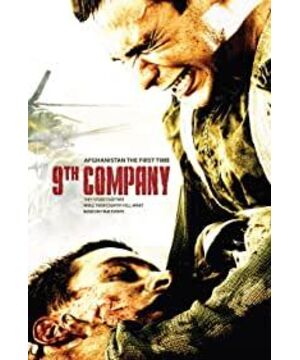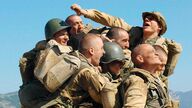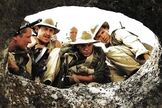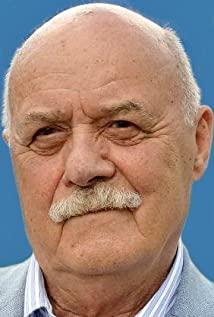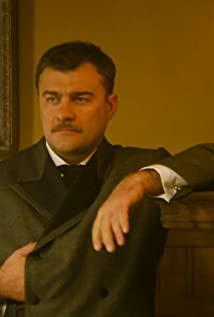The result was unexpected, the film was indeed a "blockbuster", and there were a lot of things in it that could be used to chew slowly.
The background of the story is the Afghan War. The significance of this war to the former Soviet Union is like the Vietnam War in the United States. The difference is that although the United States lost the Vietnam War, the country has not collapsed. I read some statistics a few days ago, and it is said that the productivity of Russia is not as good as it was before the collapse of the Soviet Union. Regardless of whether it is true or false, it is certain that the Russian people are far from the scenery and glory that they had when they were "world-class". This kind of historical film that cannot avoid reflection will definitely be integrated into the tragedy of this big country. The question is just how much and how. Throughout the whole film, the tragic component only broke out at the end of the film, and the rest of the time was mainly the description of people and the excavation of human nature. To a certain extent, this is indeed a higher level than simply screaming and sighing.
The first half of the film is a tribute to "Full Metal Jacket": haircuts, lectures, repeated drills... but it can be seen that the elements of the story are the same but the performance is very different. The first is that the instructor is not a pervert representing military philosophy, but a veteran who lives in a near-death situation. His fragility, like his harshness, is truly exposed to the audience by the film. This is no longer a purely anti-war stance, but a direct restoration of people's situation after the war, earning a sigh of relief. If "Quan" is to turn ordinary people into machines, then "Part" is to push ordinary people to continue their ordinary lives in the barracks in various ways, and bear the inexplicable pressure from the war that they have never experienced. Trying to stay alive with ease is always powerless.
The second half of the description of the specific war is a competition of the dead. The first half of the fresh and alive fell one by one, whether they were afraid of death, not afraid, good marksmanship, hippie smiling faces, or those who loved desertion, they were all killed. The directness and neatness remind me of Apocalypse Now. The last bloody battle was even more real. As soon as the first protagonist came out, the first protagonist died instantly, and then the second protagonist became the first protagonist. The changing perspective shots and messy switching fully demonstrate what is called the "bad battle" that you are in me and you are in me, and the war is absolutely and truly restored. Finally, returning to the tragedies of a great country, the paleness and powerlessness of personal destiny are further highlighted and elevated, leaving a weather-beaten face that gradually disappears in the monologue.
There are also a lot of interesting settings in the film, similar to the symbol of the painter, the words he said and the moment of his death, the New Year on the battlefield, the semi-crazy group of women who call the goddess at the bottom of the woman's feet on the eve of going to the front line. The plot is not detailed. On the whole, this is a film that is purely about war but has few scenes but has a lot of depth. It is very difficult to enjoy, but it is worth paying attention to.
View more about 9th Company reviews


